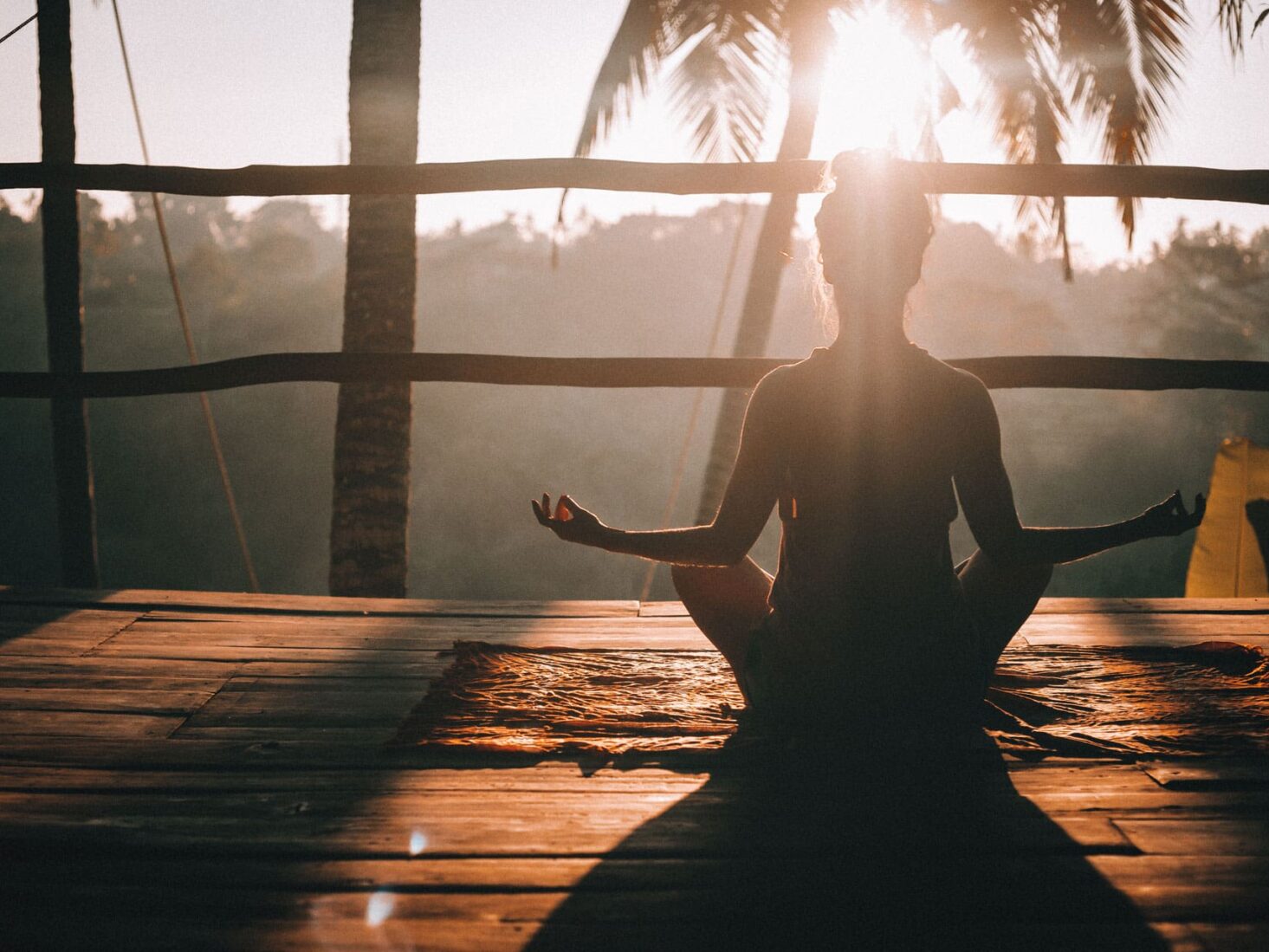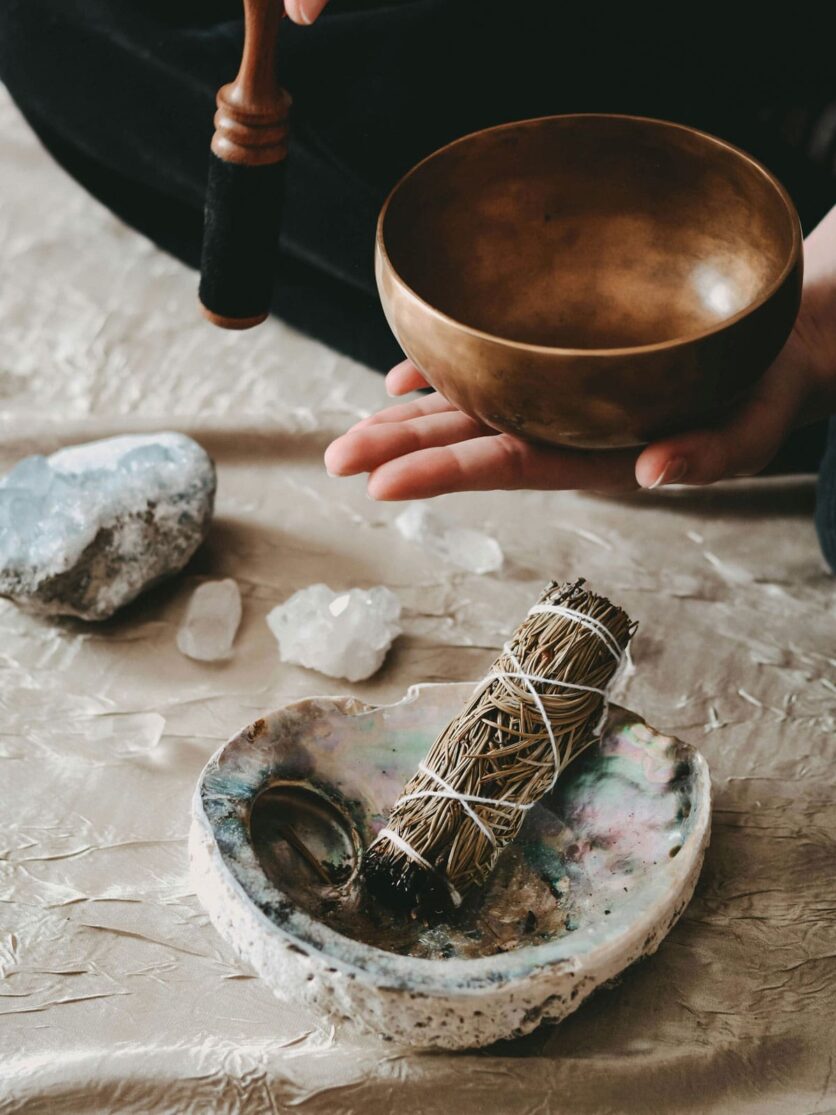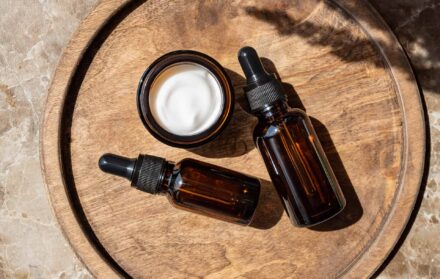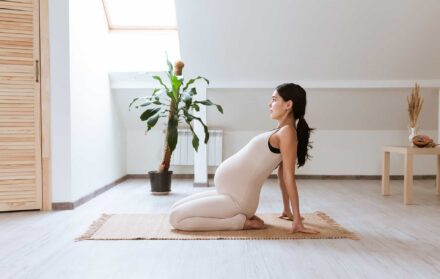
From Goop to anti-vax: How the wellness industry took a toxic turn
Is detoxifying, steaming, and seeking alternative therapies really making us ‘well’?
The Global Wellness Institute defines wellness as ‘the active pursuit of activities, choices and lifestyles that lead to a state of holistic health’. Sounds innocent – who could take issue with that? Unsurprising then, that, the industry is worth £1.1 billion globally – which equates to a lot of spirulina smoothies, yoga classes and oat balls. And those are healthy, and health is good. Right?
That taking care of your mind and body is positive isn’t disputed. But ‘wellness’ is not ‘health’. While health refers to physical condition, wellness is something far less tangible, and thus harder to attain – it refers to an active, ongoing pursuit of self-improvement, in your body, in your brain, and in your life and relationships. In her book Natural Causes: Life, Death and the Illusion of Control, Barbara Ehrenreich writes: ‘Wellness is the means to remake oneself into an ever-more perfect self-correcting machine.’
There are a million and one things that you can, and should, be doing to become your ‘best self’, according to the wellness industry. Meditating for mental clarity, ditching bread in favour of chia seeds and avocados for a healthier body, maintaining a 20-step routine (with organic products, of course) for glowy skin… It’s a formula that sets you up to fail, not least due to the fact that many tenets of the movement are only accessible to the financially privileged and able-bodied. But even with all the advantages in the world, when the goal is perfection, falling short is always the logical end result.

But the issues of the wellness industry go beyond the unattainably high bar that it sets. Wellness regularly toes the line between the scientifically verifiable and the verifiably woo-woo. Various practices and products touted in wellness circles are medically useless, which becomes problematic when you consider that (often vulnerable) people are pouring thousands into the industry annually.
Nowhere is this point better made than in the case of Goop, the wellness and lifestyle brand founded by Gwyneth Paltrow, which is worth $250 million today. Paltrow pedals remedies that have regularly drawn criticism from medical professionals; in 2015, she recommended ‘steaming’ to ‘cleanse your uterus’ (not, gynaecologists around the world implored, a thing). In 2017, Goop marketed that Jade Egg, claiming that it ‘increased sexual health’ among other things. The following year the company paid $145,000 to settle a lawsuit alleging that the remedial claims were non-scientific.
The idea that the body cannot maintain health independently, and needs a smorgasbord of supplements, superfoods and treatments to perform certain functions, is one on which the wellness industry leans heavily. Consider the ‘detox’. It is simultaneously one of the most widely-practiced tenets of wellness, and also almost unilaterally criticised by scientists for its unsound medical basis. You do not need blueberries to remove unspecified toxic substances from the body – this is done by the liver and kidneys.
Which leads me to the can of worms that is ‘clean eating’. Before I open it, let’s get something straight: it is a fact that, in the postwar decades as the processed food industry boomed, countries across the globe transitioned to a diet high in sugar, meat, fat, salt, and refined oils, and that this has increased rates of diabetes and cardiovascular disease. Everyone definitely should eat more vegetables and less sugar. This is the tricky thing about the more contestable branches of wellness: there is always an inkling of truth to their claims – enough to draw otherwise sensible people in. Then the facts stop, as seen in the myriad diets endorsed by wellness professionals.
Gluten was one of the first casualties of the wellness movement. Nutritionist and author of Get the Glow Madeleine Shaw calls it ‘sandpaper for the gut’, while Amelia Freer, author of Eat Nourish Glow, blames it for everything from brain fog to joint pain. Food writers Jasmine and Melissa Hemsley have named the GAPS – a gluten-free diet that claims to be able to treat children with autism on the basis that they have too much harmful bacteria in their gut – as the inspiration behind their recipes. The number of Americans who avoided gluten more than tripled between 2009 and 2014, however, according to Harvard Health, ‘there is no compelling evidence that a gluten-free diet will improve health or prevent disease if you don't have celiac disease and can eat gluten without trouble’.
Cow's milk has been another victim. A non-existent industry prior to 1996, plant-based products accounted for a third of milk sales in the UK in 2021, according to The Independent. The report also stated that the main motivators for this shift were the environment and health, but non-dairy substitutes are only ‘healthier’ in the sense that they contain fewer calories, and weight loss and health are two different things. The nutritional value of almond milk is little better than water, containing just 0.1g protein per 100ml.
Sugar, of course, is the devil incarnate in wellness circles. Chef and food blogger Tess Ward, who has 130k Instagram followers and claims to lead a ‘regenerative organic life’, says she stays ‘clear of anything white’ or ‘refined’, and recommends ‘natural’ sugars such as raw honey, blackstrap molasses, and coconut palm sugar. Similarly, Shaw’s recipe for gluten-free brownies contains coconut sugar. However, these sweeteners are metabolised by the body in exactly the same way as cane sugar, and, for all intents and purposes, are no less ‘natural’. When it comes to oil, the American Heart Association has said that coconut oil, once held up as a panacea by clean eaters, has ‘no known offsetting favourable effects’.
To categorise food so rigidly, and to demonise certain groups, is not healthy. Jordan Younger, formerly known as The Blonde Vegan, began documenting her ‘gluten-free, sugar-free, oil-free, grain-free, legume-free, plant-based raw vegan’ lifestyle to her 70,000 followers back in 2014. But when her hair began to fall out, her periods stopped, and her skin developed an orange tinge, she sought medical help and was diagnosed with orthorexia – an obsession with eating only foods deemed healthy. She began to widen the remit of foods she could eat, rebranding as ‘The Balanced Blonde’.
This is what happens when food becomes a belief system, where certain things are deemed not only bad for your health but also seen as morally wrong. In Shaw's cookbook, prohibited foods are described as ‘foes’ and ‘cheats’; thus, to abstain from them is a moral achievement. In 2015, Nigella Lawson expressed ‘disgust’ at this prospect, writing ‘food is not dirty’.
Clean eating, although it may, in extreme cases, breed disordered eating and even eating disorders, is not inherently dangerous, in the same way that Goop’s Body Vibes – wearable stickers that were meant to ‘re-balance the energy frequency in our bodies’ – should be taken with several pinches of salt, but aren’t really hurting anyone (apart from the wallets of people rich and gullible enough to buy them). However, when Paltrow platforms ‘medical medium’ Anthony William who, a 2016 blog post on the site states, uses ‘the voice of a divine force called Spirit’ which ‘guides him to identify the roots of his patients’ hard-to-diagnose illnesses and find the best solutions to restore their health’, things start to get murky. Veganism and yoga are all well and good, but making bogus medical claims, encouraging a distrust of medicine, and directing people away from getting the treatment they need is when wellness pivots from questionable to dangerous.
In 2008, Australian journalist Jess Ainscough was diagnosed with cancer. Rather than follow the treatment prescribed by her doctor, she decided to undertake something called Gerson Therapy, which involves drinking vegetable juice and doing coffee enemas four times a day. She died in 2015. In 2012, after British army officer Naima Houder-Mohammed was diagnosed with cancer, she paid over £62,000 for naturopath Robert O Young’s ‘alkaline treatment’, which consisted mainly of intravenous infusions of baking soda. She died later that year. Young has since been convicted of charges including practicing medicine without a licence.
These are, of course, outlying cases, and happen in the extremities of the wellness space. During the Covid pandemic, however, anti-science rhetoric, and specifically anti-vaccinationism, came to the fore. To be clear, not all wellness advocates are anti-vax, and not all anti-vaxxers come to this position through wellness. However, the industry’s preoccupation with ‘purity’ and not putting ‘unnatural’ substances into the body, as well as a mistrust of mainstream institutions, caused the New Age and the alt-right to converge in unexpected ways.
Phoebe Greenacre, a ‘somatic therapist and devoted yogi’ with 24.7k followers on Instagram, posted a story describing vaccine passports as ‘medical apartheid’, while Joseph Mercola, a US-based wellness entrepreneur, was dubbed the ‘most influential spreader of Covid-19 misinformation online’ by the New York Times. Elsewhere, Dr Christiane Northrup, a former wellness guru, has a history of opposing vaccination and embracing QAnon ideology surrounding the pandemic. The director of conspiracy theory documentary Plandemic, Mikki Willis, is a well-known figure in the California yoga scene, while raw food advocate David ‘Avocado’ Wolfe is an outspoken anti-vaxxer.
While a healthy scepticism of pharmaceutical companies is warranted (in 2021, Purdue Pharma paid $4.5 billion to settle its role in the opioid crisis after evidence emerged that it played down the addictive qualities of OxyContin), the spread of misinformation that actively endangers the population certainly is not. According to the World Health Organisation, nearly 7 million people have died of Covid-19 globally to date and, while it's impossible to tell the exact impact misinformation has on these figures, in May 2022 NPR reported that an estimated 1 million people in the US alone may have survived had they been vaccinated.
Cold water immersion, breath work, crystals, qigong, acupuncture, aromatherapy… There's nothing wrong with practicing these if they make you feel better; it is wrong, however, to weaponise and commodify health and happiness, and savvy consumers would do well to interrogate the motivation of anyone profiting, either financially or through social media fame, from such practices.
After all, it is in the interest of every raw food restaurant and supplement-peddling influencer to sell you solutions – legitimate or bogus – to problems – real or imagined. And the line between helping and hindering can be, in this case, vanishingly fine.
Read more: Greenwashing – the truth behind fashion's sustainability claims






